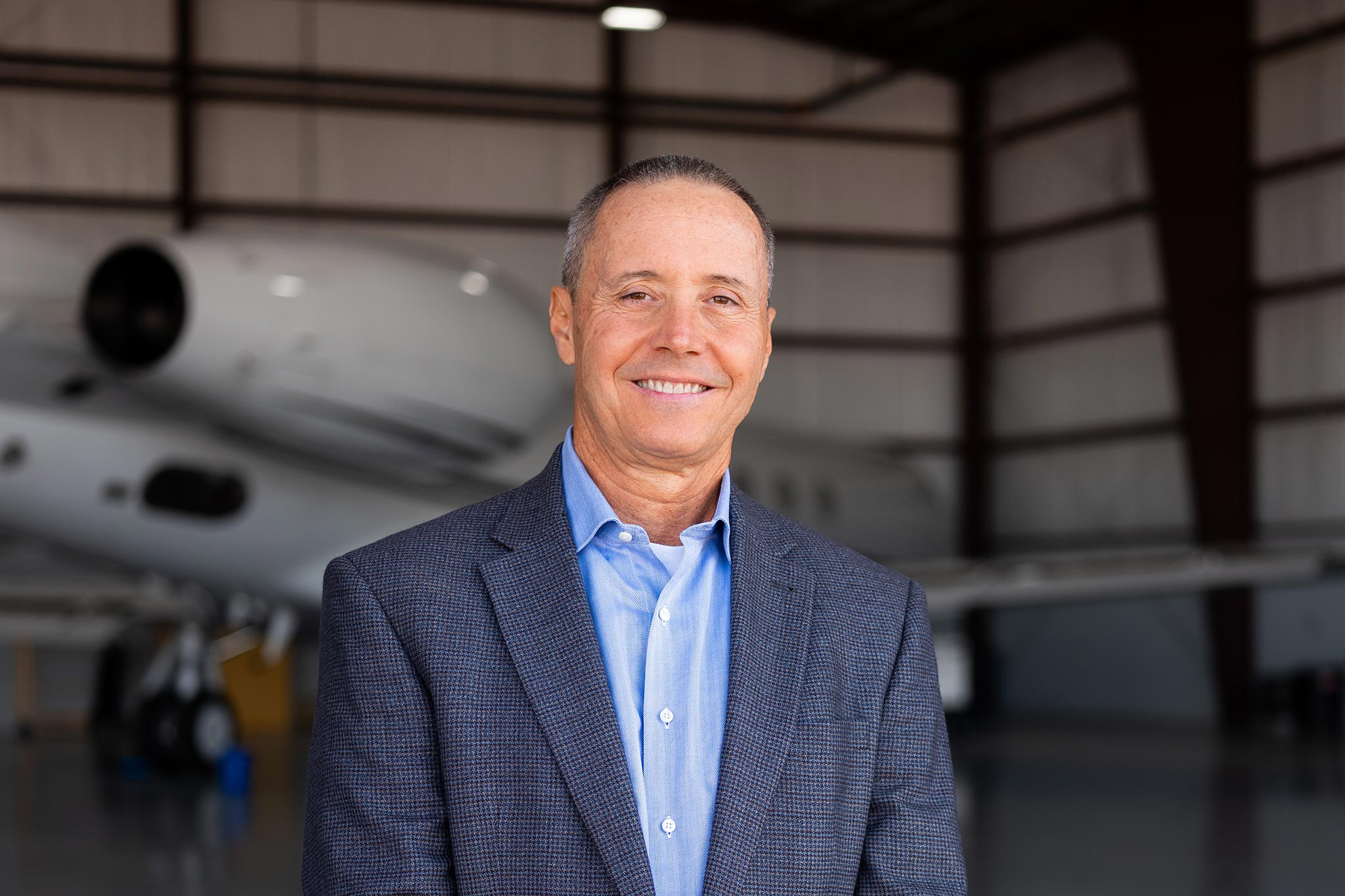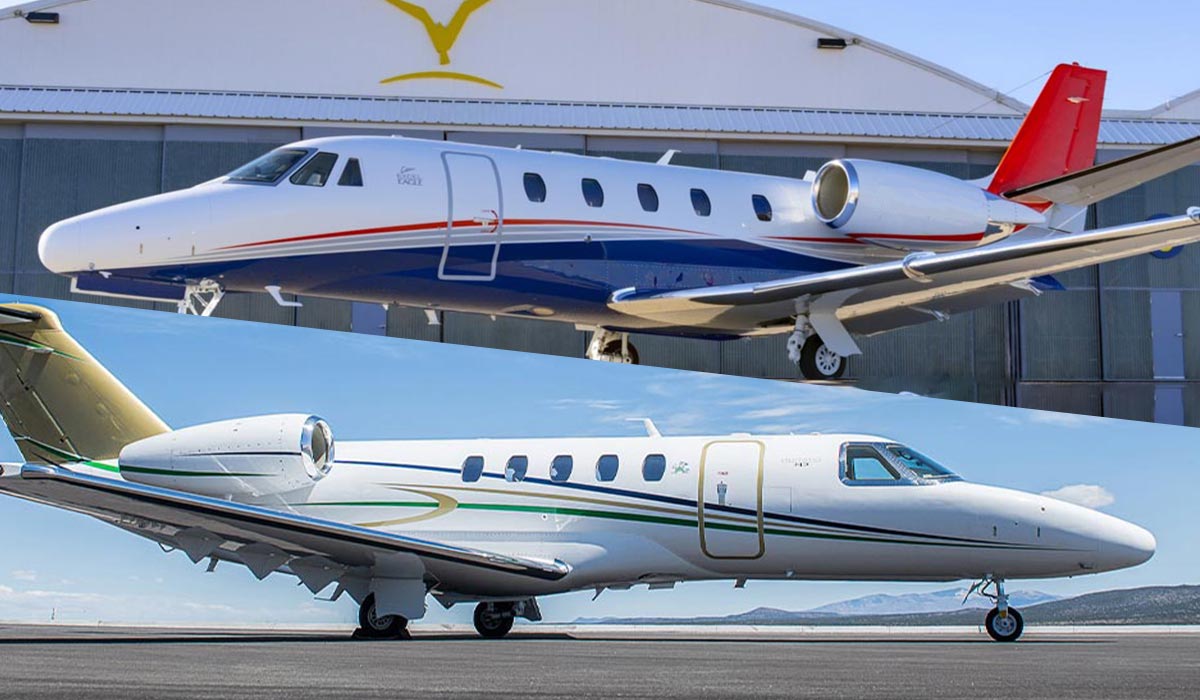
Flight Plan – Purdue Alumnus Magazine
Date
February 10, 2010 When Ben Marcus was growing up in Santa Monica, California, a vivid picture of his future was on display daily and located the length of a football field away from his home.
When Ben Marcus was growing up in Santa Monica, California, a vivid picture of his future was on display daily and located the length of a football field away from his home.
“I got interested in aviation because I grew up 100 yards from a runway at the airport in Santa Monica,” Marcus says. “I was fortunate enough to take my first flight lesson at age 10. I made a deal with my parents that they would pay for one hour of flight training a month as long as I kept my grades up.”
Marcus (T’02) continued that path of learning until he was eligible to fly solo at age 16. He then paid for an increase in training hours by working various jobs.
That deal with his parents was not the only arrangement Marcus had set up. He and his best friend Cyrus Sigari tried to start their first airline-based business when they were both 14. However, their dreams of being budding business tycoons would have to wait until their educations were complete. Sigari’s father had obtained his private pilot license years ago. That helped spark the same interest in Sigari (AAE’03).
The friends who first met at the Santa Monica airport when they were 12-years-old continue to work together today as co-founders of jetAVIVA, a company that serves as a light jet sales and acquisition firm along with providing Experience Light Jets for jet owners. Very light jets are designed to be smaller and have a lower price and operating cost than conventional jets.
“We decided to start our business based on a need in the marketplace,” Sigari says. “We had a good first pitch and we then had to adapt to the marketplace and fit what our customers were looking for.”
Marcus and Sigari started jetAVIVA nearly four years ago based on new light jets coming into the consumer market.

Cyrus Sigari (AAE’03) and Ben Marcus (T’02) are young entrepreneurs who have helped hundreds of people go through the process of plane ownership.
“When I graduated from Purdue, I got into airplane sales,” Marcus says. “I was hired by Eclipse Aviation in New Mexico. When we were both at Eclipse, we realized technology was bringing the price down and more people got into it who couldn’t afford it before. There was a gap on what was needed to educate people on ownership and flying. The company could build cheaper planes, but what to do after delivery?”
To turn that initial idea into jetAVIVA, Marcus and Sigari relied on the combination of their business savvy and the technical knowledge gained at Purdue.
“I can’t stress enough how much my time at Purdue helped me in my career,” Sigari says. “Being on the aerospace engineering student advisory council, I realized that getting volunteers to work for you for free was hard but a rewarding challenge. You have to motivate through fruits of labor. The rigors of the curriculum helped me solve problems and learn how to best optimize resources. It wasn’t an easy experience academically.”
Sigari’s original timetable for graduating and entering the workforce was affected by a position that became available within Eclipse
Aviation.
“I had to graduate early in 3 1/2 years because they could wait a few months but not eight months. One of the main reasons I got the job right out of school was due to fellow Purdue alum Ken Harness. My experience at Purdue helped me get a foot in the door and take an opportunity and run with it.”
Marcus’ first work opportunity in sales came after he graduated. When he started his first sales job with a Cessna distributor, he quickly became a student of sales.
“I had not sold a piece of fruit or clothing. I had not sold anything until I sold my first airplane,” Marcus says.
Marcus worked at his sales skills by buying a book on the subject and examining the steps involved.
“It is a stretch for my personality,” Marcus says. “I think of it as a process or a procedure. When you start with a lead and do a sale, it’s a cool process. We have a long-term relationship with clients. We help them with the technical aspects and training. Most of our business comes from word of mouth. It’s important we do a good job with each client.”
In addition to the work Marcus put in to sharpen his sales skills, his client communication ability is aided by being trilingual in English, Hebrew, and German. Sigari is also able to speak three languages: English, Spanish, and Farsi.
Learning to fly
 When the two friends were working together at Eclipse Aviation, Marcus stayed focused on a goal that had formed in his mind when he was a volunteer for Angel Flight during middle school and high school.
When the two friends were working together at Eclipse Aviation, Marcus stayed focused on a goal that had formed in his mind when he was a volunteer for Angel Flight during middle school and high school.
Angel Flight is a charity organization made up of pilots. Its purpose is providing free air transportation for medical patients
in need. Patients are usually traveling for surgery, chemotherapy, dialysis, or other treatments.
Seeing the older volunteers in action gave Marcus a view into their world when he was a teen. It is a volunteer activity he has continued as an adult.
“For me, the biggest eye-opener was when I was a volunteer for Angel Flight. All of the volunteers rented or owned aircraft. I went on many flights as a co-pilot. I realized all the people I was flying with were entrepreneurs and not employees. I aspired to own my own plane.”
Sigari and Marcus took the first steps of entrepreneurship by setting up a business plan. They also developed a financial plan and discussed risk management.
“At the beginning of the company as we envisioned a management service, we had a lot of infrastructure development and we split up the outward and inward duties. Cyrus was responsible for marketing the brand and I handled the inside stuff — finance and legal affairs. Our business plan has changed. You have to respond to what markets demand. All our risk factors from 3 1/2 years ago materialized,” Marcus says with a laugh.
Sigari appreciates the freedom and adrenaline rush that is part of flying. His reaction to the task of developing jetAVIVA contained a wide range of emotions.
“It was challenging, exciting, scary, fun — every emotion,” he says. “There were a lot of unknowns, but with those unknowns came opportunity.”
Marcus and Sigari’s light jet inventory at jetAVIVA includes Cessna Citation Mustangs, Citation Jets (CJ1-CJ4), and Embraer Phenom 100 models along with a handful of other jets. Considering the current economic climate, the company’s clients do maintain a degree of consumer – independence.
“We specialize with owner/pilots,” Marcus says. “They are on their own and they see the opportunity to upgrade and get a good deal. That has catapulted us into a larger aircraft market. These $2 to $8 million dollar jets we deal with, they (pilots) transition into the next step.”
With the investment by the owner being a few million dollars, Marcus feels his education at Purdue gives him a solid ability to help jet owners get the most out of their money spent.
“One of the keys to our success is the depth of technical training we got,” he says. “We got our start in that at Purdue. That led the way to us being at Eclipse and knowing the technical details of planes in and out. Owner/pilots look for technical descriptions of a plane. They want to really know how the plane works. Purdue gave us that technical foundation.”
Plenty of pursuits
Aside from discussing the technical aspects tied to jets, Marcus and Sigari enjoy the travel opportunities that come with their work commitments. That includes delivering planes back to the United States from abroad. They also have an interest in competitive aerobatics.

Marcus shows a Phenom 100 to a potential buyer.
“I enjoy surfing and spending time with my family,” Sigari says. “But if I don’t fly, I start getting antsy. I have been able to travel and see good places. It is work with a vacation worked into it. Flying has been a big part of my life and it’s important for Ben and me to do that on a regular basis.”
The original joy Marcus first experienced as a teenage pilot is still strong today.
“Flying is a different experience now and I have never stopped loving flying,” Marcus says. “The sights and sounds change because I am in a different aircraft now. I started in a single-engine 118 horsepower plane. Now I’m in jets with two engines. It’s different altitudes and a different view.”
While the dynamics of flying have changed for Marcus, some things have remained constant during his career.
“I still very much love flying and interaction with customers. I’m very excited to go to work every day and glad to grow my friendship with Cyrus. In my experiences since I have graduated, Purdue grads have proven to be good people to work with.”
Within a work environment that calls for Marcus and Sigari to sell themselves and counsel jet owners, Sigari says the social skills he picked up while at Purdue play a big part in daily life.
“As I look back, that 3 1/2 years at Purdue was a significant enabler. Each organization helped me develop my social skills.”
That growth served as a catalyst for Sigari’s work within jetAVIVA, a company that has helped hundreds of pilots make the transition to jet ownership. The company history includes more than 100 jet transactions totaling more than $300 million.
“There are risks, but we have been able to get rewards,” Sigari says. “There were times we each questioned our decisions, but we were able to lean on each other and look forward. I wouldn’t give it up for the world.”
Reprinted from Purdue Alumnus Magazine By Brian Hudgins



